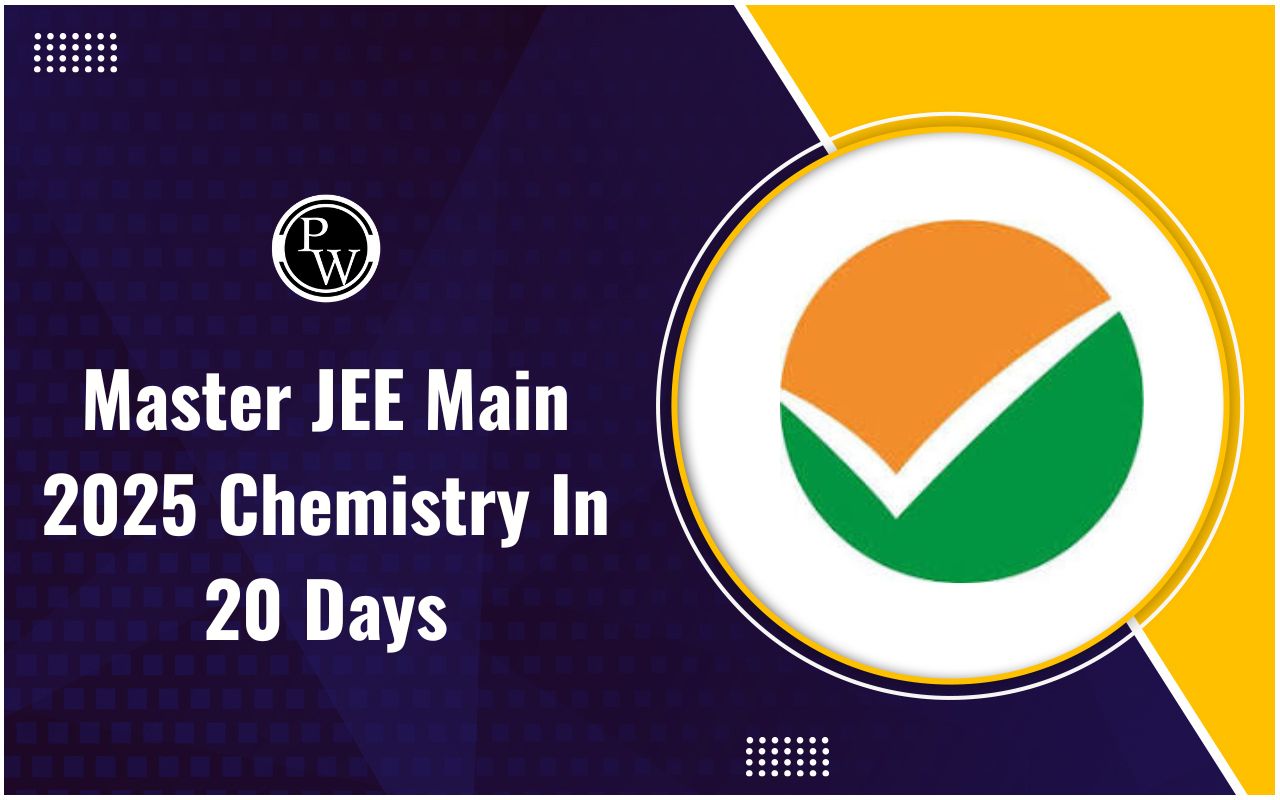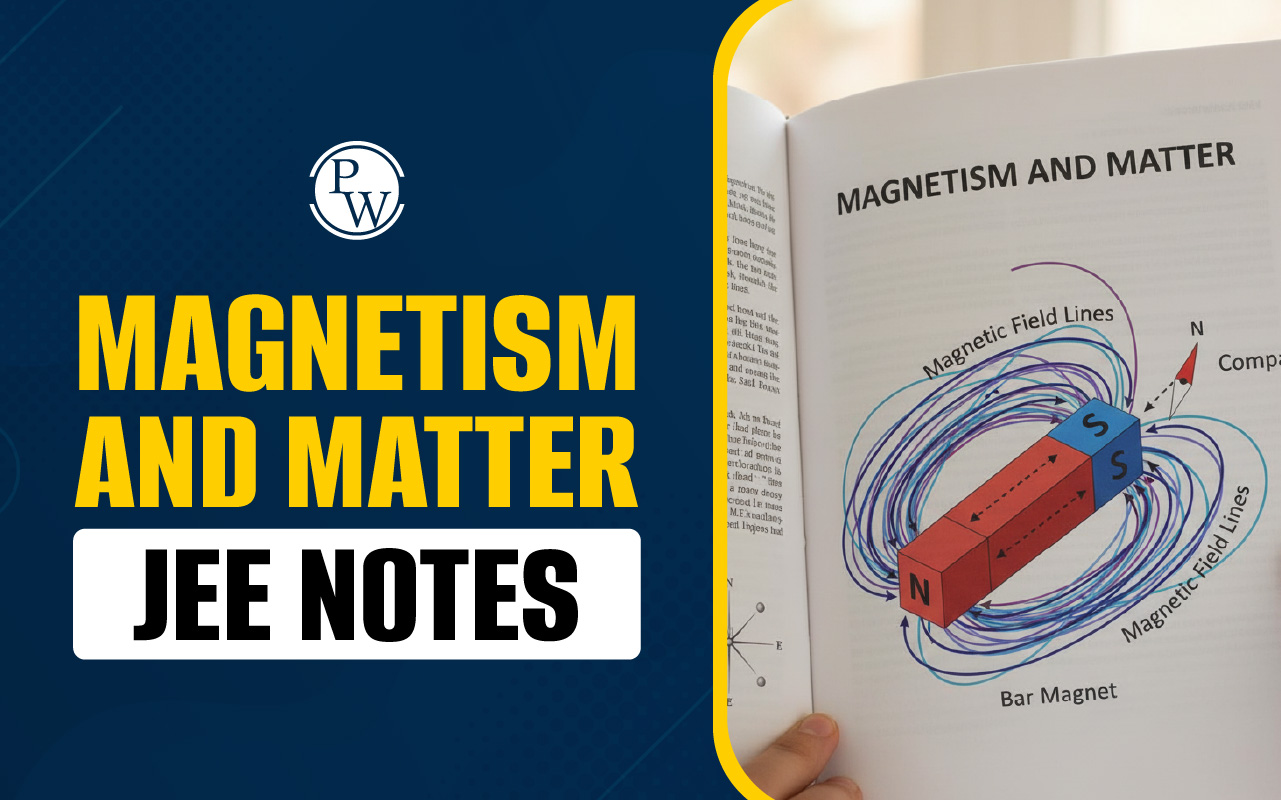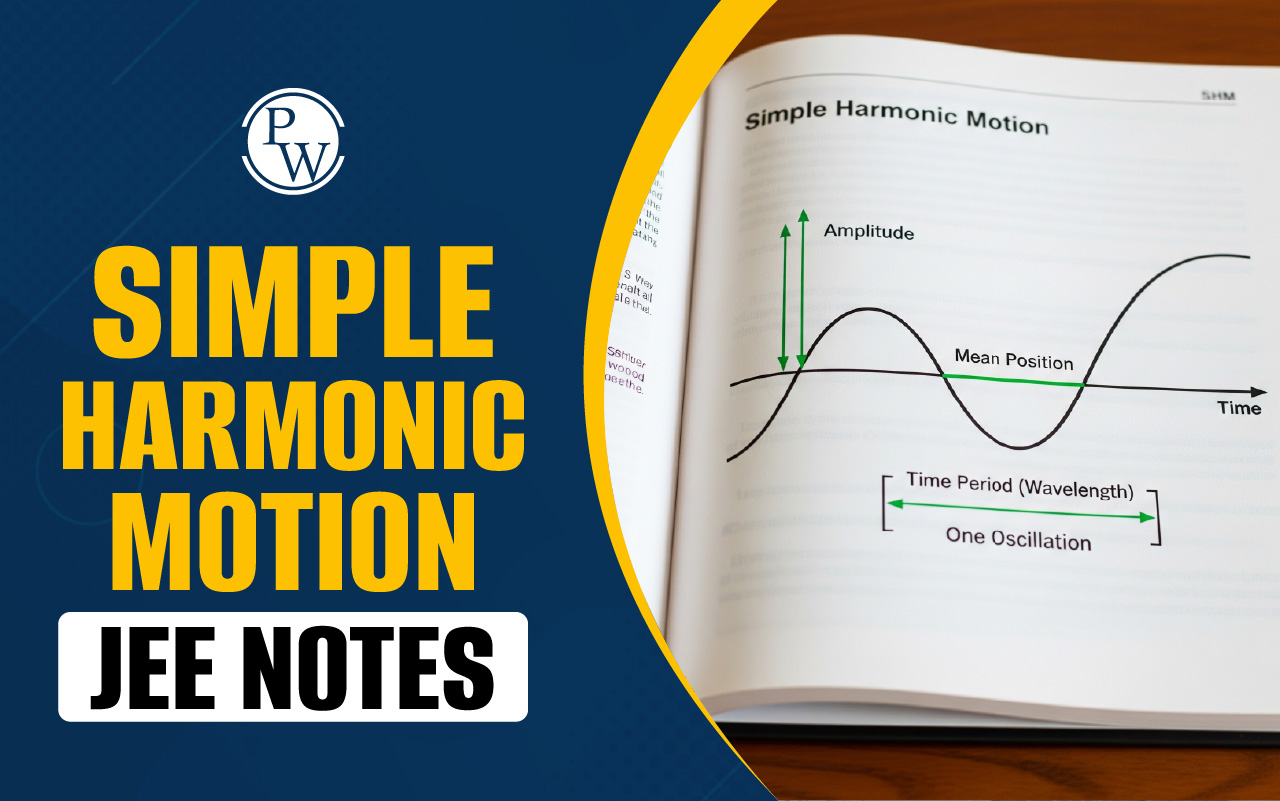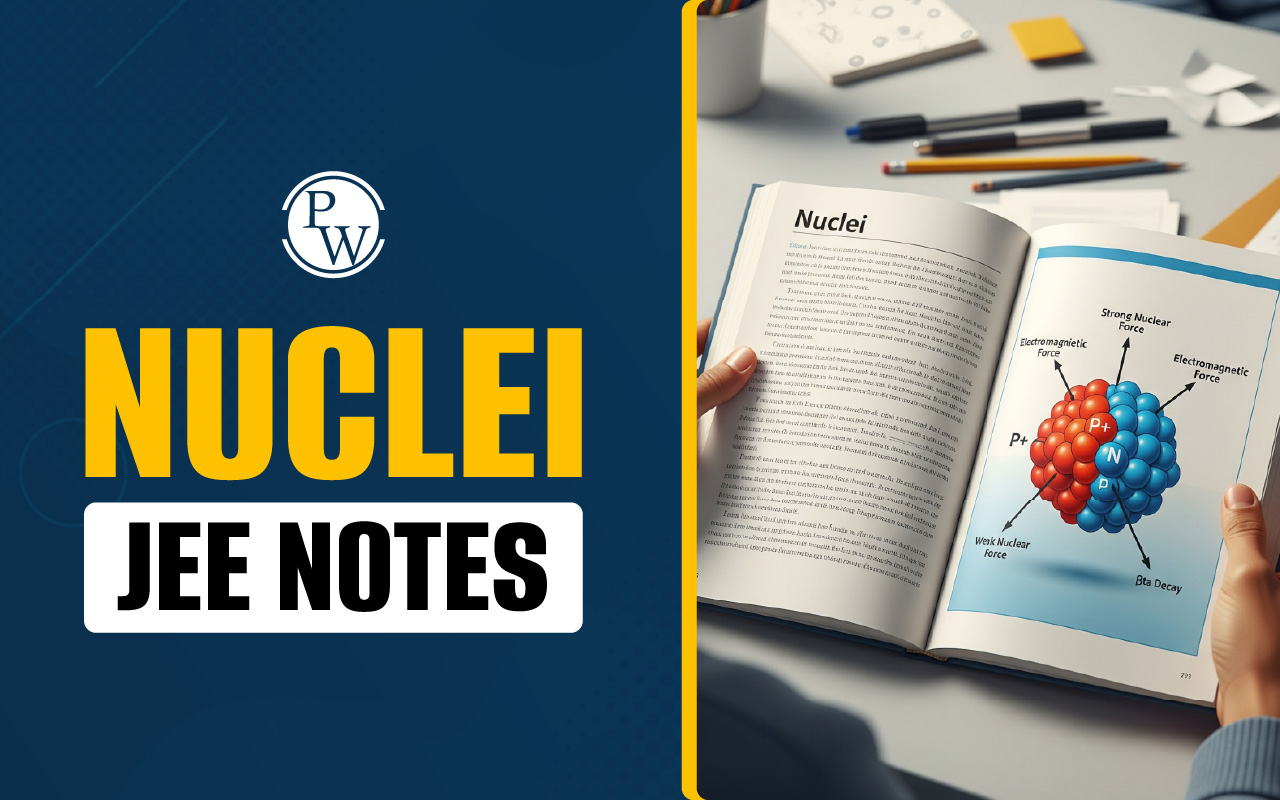

Master JEE Main 2025 Chemistry in 20 Days With 10 Key Chapters to Score 80 Plus Marks : Chemistry is one of the most important subjects in the Joint Entrance Examination (JEE). It helps students score well because it is often easier to understand and score in compared to Physics and Mathematics. With the JEE Main Session 1 exam date set for January 22-30, 2025, there are only a few days left to prepare.
By focusing on 10 key chapters in Chemistry over the next 20 days, students can improve their chances of scoring 80+ marks in the final JEE Main 2025 examination. Keep reading to find out which chapters to focus on and how to master them effectively.
Suggested read: How To Create The Perfect JEE Preparation Plan For Success?Master JEE Main 2025 Chemistry in 20 Days With 10 Key Chapters to Score 80+ Marks
The JEE Main Chemistry Syllabus 2025 is a balanced mix of concepts from Class 11 and Class 12, with around 48% weightage given to Class 11 and 52% to Class 12. Over the years, Organic Chemistry has contributed the most to the paper with around 36% weightage, followed by Inorganic Chemistry at 33.30% and Physical Chemistry at 30%. Understanding these trends is necessary as it helps students prioritize their preparation effectively. By focusing on the right chapters from each section, students can build a strong foundation and improve their overall performance in Chemistry.
To make preparation more effective, the top 10 chapters will be divided into three categories: easy, moderate, and tough, so students can plan their 20-day study schedule strategically and score 80+ marks in Chemistry.
Also check: JEE Advanced 2025 Strategy for Top IITEasy and High-Weightage Chapters for JEE Main 2025 Chemistry Section
To start the 20-day Chemistry preparation plan, aspirants must focus on chapters that are both easy to understand and carry high weightage in the JEE Main examination. These chapters not only require minimal effort but also provide significant scoring opportunities.
- Coordination Compounds: Coordination Compounds is one such chapter from inorganic chemistry that generally appears in the exam with around 2 to 3 questions. It covers straightforward topics like crystal field theory, ligands, isomerism, and Werner’s theory, coordination number, the bonding-valence bond approach, and basic ideas of crystal field theory, color, and magnetic properties, among others.
- Chemical Bonding: Similarly, Chemical Bonding is another high-weightage chapter, contributing 2 to 3 questions. This chapter is foundational to chemistry, with key concepts such as hybridization, molecular orbital theory, and VSEPR theory playing an important role in solving related questions.
- D and F Block Elements: The D and F Block Elements chapter, which also accounts for 2 to 3 questions, focuses on the properties, reactions, and colors of compounds. With its direct and common questions, this chapter can be a good way of scoring high marks.
- Periodic Properties: Periodic Properties, though slightly smaller in scope, typically appear with 1 to 2 questions. Its emphasis on periodic trends like atomic radius, ionization energy, and electronegativity makes it a vital area to master as it connects seamlessly to other chapters.
- General Organic Chemistry (GOC): General Organic Chemistry (GOC) is another important topic that forms the basis for solving organic questions. This chapter, which carries 1 to 2 questions, emphasizes reaction intermediates, resonance, and inductive effects.
- Biomolecules: Biomolecules, though largely theoretical, often appear in 1 to 2 questions. Covering topics like carbohydrates, proteins, and vitamins, this chapter is simple yet scoring.
- Hydrocarbons: Hydrocarbons, which usually carry 2 questions, focus on alkanes, alkenes, and alkynes. With its direct reaction-based questions, it is one of the easiest organic chapters to prepare.
- Carboxylic Acids and Amines: Carboxylic Acids and Amines, appearing in around 2 questions, emphasizes reaction mechanisms and chemical properties, making it another vital topic for organic chemistry preparation.
- Mole Concept: The Mole Concept is an important chapter in Physical Chemistry, contributing to 1 question. As a foundational topic, it is essential for understanding stoichiometry and solving problems involving limiting reagents.
- Structure of Atom: Finally, the Structure of Atom is another basic but high-weightage chapter, with 2 questions usually asked in the exam. Revising Bohr’s model, quantum numbers, and the dual nature of matter can help students secure marks easily in this topic.
By focusing on these easy yet high-scoring chapters, aspirants can cover a significant portion of the JEE Main Chemistry syllabus and ensure they are well-prepared to score 80+ marks in the final examination.
Read: JEE Main 2025 : 10 Chapters To score 80+ In PhysicsJEE Main Tough and High-Weightage Chapters to Focus On
While the chapters mentioned earlier are relatively easier, there are certain chapters that are tougher but still carry high weightage in the JEE Main exam. These chapters may require more effort to master, but they are important for securing a good score.
- Aldehydes and Ketones: Aldehydes and Ketones carry around 1 to 2 questions in the exam. Though the concepts and reactions can be complex, understanding the functional groups, their reactivity, and mechanisms will help students tackle questions more confidently.
- Halogen Derivatives: Halogen Derivatives typically appear with 1 question in the exam. While the topic itself is not too difficult, it involves numerous reaction mechanisms and functional group transformations, which require thorough understanding and practice.
- Alcohols, Phenols, and Ethers: This chapter usually contributes 2 questions and covers a range of organic compounds and their reactions. Students need to be well-versed in the preparation methods, properties, and reactions of alcohols, phenols, and ethers to perform well.
- Electrochemistry: Electrochemistry is another chapter that carries 1 to 2 questions in the exam. It involves understanding concepts like oxidation-reduction reactions, electrochemical cells, and Nernst's equation. This chapter may seem challenging but can be mastered with proper practice and conceptual clarity.
- Chemical Equilibrium: Chemical equilibrium typically appears with 1 question. The concepts of Le Chatelier's principle, equilibrium constants, and calculations can be tricky, but mastering these concepts can help students tackle problems efficiently.
- Redox Reactions: Redox reactions, contributing to 1 question, require a deep understanding of oxidation states, balancing reactions, and identifying reducing and oxidizing agents. Though it may seem complex, regular practice can help students get comfortable with this topic.
- Hydrocarbons: Hydrocarbons, which can appear with 1 to 2 questions, involve a variety of reactions and mechanisms. Though this chapter is relatively easy in some sections, other areas, such as the reactions of alkynes and aromatic hydrocarbons, can be tough. Focus on mastering the key reactions to perform well.
- Thermodynamics: Thermodynamics contributes to 2 questions in the exam. The concepts of the laws of thermodynamics, entropy, enthalpy, and Gibbs free energy are fundamental yet challenging. A clear understanding of these concepts is essential for solving related problems efficiently.
Moderate and Low Weightage Chapters for JEE Mains 2025
In addition to the easy and tough chapters, there are also medium- and low-weightage chapters that still require attention. These chapters are important for building a comprehensive understanding of chemistry and can help students fill in the gaps in their preparation.
- Ionic Equilibrium: While this chapter may not carry as much weightage as others, it is still essential to understand concepts like acids, bases, and buffers, as these topics are commonly tested in JEE Main.
- Thermochemistry: The concepts of heat changes during reactions and understanding enthalpy, heat of formation, and Hess's law are important. A basic understanding and practice will be enough for this chapter.
- Salt Analysis: While this topic is practical and involves identifying the composition of salts, it requires precision and careful understanding of different tests and reagents. However, it is unlikely to appear with a high frequency in the exam.
- Isomerism: Focusing on structural, geometrical, and optical isomerism can help aspirants score easily in this chapter.
- IUPAC Nomenclature: IUPAC Nomenclature is another topic that may seem tough; mastering the rules of naming organic compounds is necessary for understanding organic chemistry.
These chapters, though low in weightage, are important for a well-rounded preparation. Aspirants should allocate a small portion of their time to these topics. A total of around 20 marks can be expected from these chapters, so while they should not be ignored, they do not need as much focus as the high-weightage chapters.
Suggested read: JEE Main Maths Chapter Wise Weightage 2025 For Class 11 And Class 12
In the final stretch of preparation for JEE Main 2025, dividing the chapters into easy, moderate, and tough categories can efficiently aid in managing time and effort. With just a few days left before the JEE Main Session 1 exam, following a structured 20-day study plan will help aspirants strengthen their chemistry section and maximize their chances of scoring 80+ marks. Consistent practice, understanding key concepts, and solving previous years' papers will help students build confidence and perform well on the exam day.
Study Material For JEE Main 2025 Preparation
Physics Wallah (PW) offers comprehensive study material for JEE 2025 , designed to help students excel in this competitive exam. The material includes detailed theory notes, practice questions, previous years’ papers, and mock tests for Physics, Chemistry, and Mathematics. Each topic is explained with clear concepts and illustrated examples, ensuring a strong foundation
Master JEE Main 2025 Chemistry in 20 Days With 10 Key Chapters to Score 80 Plus Marks FAQs
Ques. Is Chemistry in JEE Main 2025 easy?
Ques. How can I score 80+ in the JEE Mains 2025 Chemistry section in the remaining days?
Ques. What are the high-scoring topics in the JEE Main Chemistry syllabus?
Ques. What chapters should I skip in Chemistry for JEE Mains Session 1 2025?












